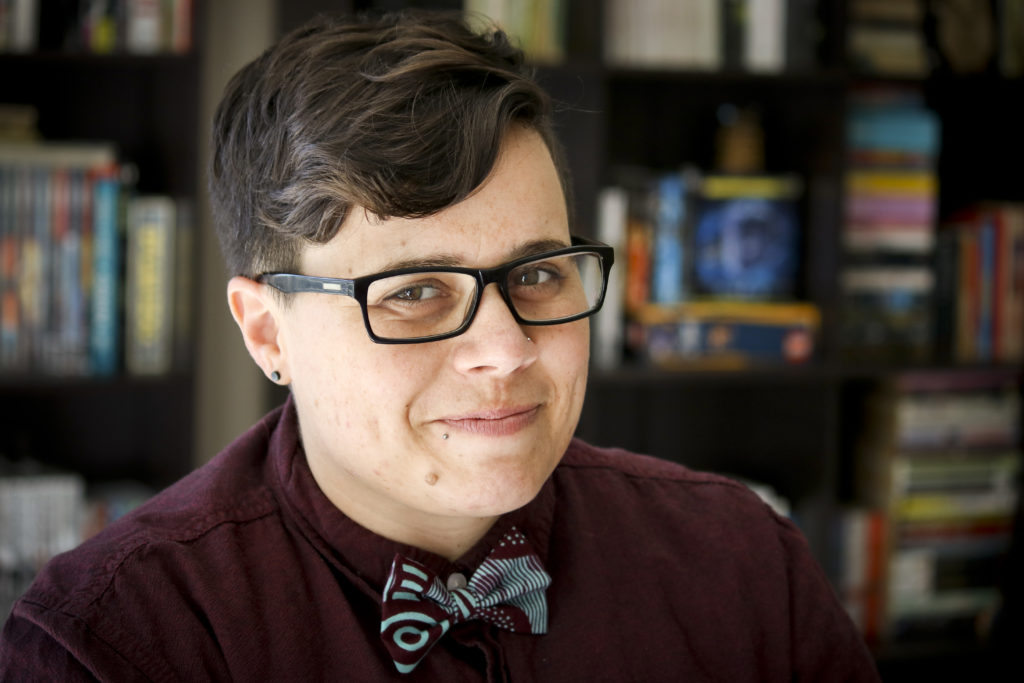By NYX MCLEAN
Anxiously I paced. I can normally show up for my usual check-up at my GP, sit down and lose time in a book or marking an essay. But this week, I could not do that; I was at my GP because I had potentially been in contact with someone with COVID-19 – after weeks and months of dodging the invisible glitter-like virus. I was not coping, pacing up and down outside the practice, wondering if it was my turn.
I have a grumpy set of lungs that hospitalised me in November 2019, just before COVID-19 made itself fully known to the world. I have tried my very best to avoid going through that experience again.
When I first heard I had been exposed, I called the three people I had been in contact with since that potential point of contact. I told them I would let them know the outcome of my test.
But it was not easy to make those calls; it felt like I was building up strength to jump off a cliff into some unknown space that seemed a lot like stigma-induced shame. I kept wondering what they would think of me and how I could have put them in such danger.
I knew I had taken every precaution I could. I wear my mask over my mouth and nose, I sanitise, I keep my distance, and I try not to see more than two people at a time together. But the risk is there; it is ever-present for now. I am one jab into being fully vaccinated, only two weeks fresh. I am also vaccinated against various strains of pneumonia – a precaution my doctors advised me to take last year before a COVID-19 vaccine was even a reality.
But I was still terrified of testing positive, what it would mean for my health, and what it would mean for those close to me. I kept thinking: what do we owe each other?
My answer came to me based on the responses of my contacts; all three had been exceptionally kind and compassionate. They checked in with me to see how I was doing while I waited for the test results; they reassured me that I had done my best to be safe and that they would still stick around if I tested positive.
I had been hesitant to tell them I had been in contact with someone because I did not want to lose their respect and friendship. But their lives mattered to me more than my pride and my fear; I needed to say something because the idea of bringing harm to these friends was an awful one to imagine trying to live with.
At no point in my discussion with them did I disclose the identity of my potential contact; I respected their anonymity and privacy. But I did what was necessary to live with myself and told people that I was a potential risk.
I think the answer to my question is that we owe each other radical honesty, kindness, and compassion. COVID-19 has made our lives incredibly challenging, and it has taken so much away from us. But it does not have to take away our ability to show those around us we care and that we respect their lives as much as we respect our own.
I luckily tested negative and let everyone know that they were safe and could emerge from their self-isolation. My test outcome felt like sheer luck, but I also know that it is because I choose to mask, sanitise, keep my distance, and get vaccinated not only for my health but for the health of those around me.
What we owe each other is not only limited to our current reality of living alongside COVID-19 but extends to the conversations we are having with people at Grocott’s Mail. Sometimes we receive challenging comments, feedback, and attacks that feel almost personal. As one of the people who respond to the comments posted on our Facebook page, I often have to remember that Grocott’s Mail is bigger than anyone who works at Grocott’s for the greater Makhanda community. We try to respond to all comments with radical honesty, kindness, and compassion. We may not always get it right, but we do our very best to meet people where they are at, to ask them questions that may lead us to a place of greater understanding, where we can have productive conversations with each other.
We encourage our readers to also engage with each other on our platforms in ways that lead to productive conversations – we can discuss and engage with difficult topics if we respect each other as people, knowing that we all have different values and lived experiences but that we all are part of a community.


